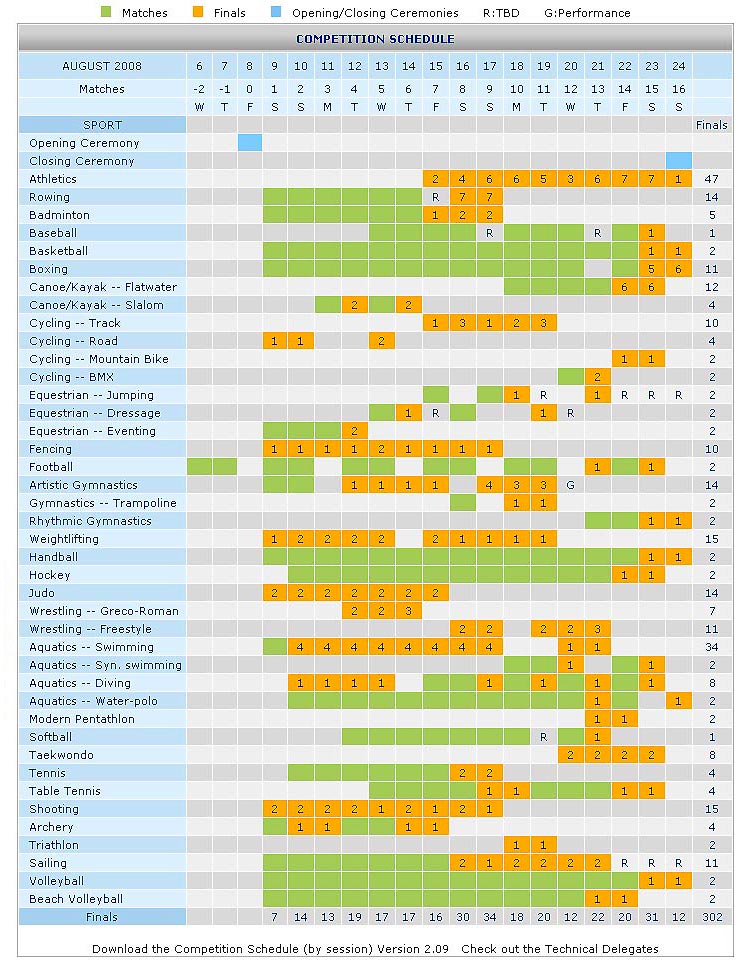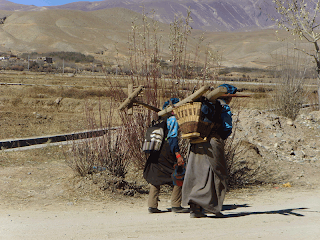Introduction
Beijing is a civilized ancient city with a long history and a developed trade. As early as in the Yuan Dynasty 1 1206-1368), Beijing was a famous commercial city in the world. During the Qing Dynasty, the market in Beijing was brisk. Today shops in Beijing are in a great number, scattered in every corner and goods are sophisticated. Goods on Beijing market are brand, special and new products from various parts of the country.
Today, Beijing has 10 famous shopping streets including the Wangfujing, Dongdanbei, Longfusi, Xidanbei, Qianmen and Xiushui streets, and Liulichang Cultural Street. These streets boast modern malls and boutiques or special articles shops and provide various kinds of services.
The goods tourists to Beijing prefer to buy are unique handicrafts and cultural relics full of Beijing flavor, such as cloisonne, jade ware, bronzes and stone tablets with inscriptions, writing brushes, ink sticks, paper and ink slabs, antiques, paintings, calligraphic works and handicrafts including dough figurines, facial masks and kites unique to Beijing.
Famous Bazaars
New Dong'an Bazaar
New Dong'an Bazaar on Wangfujing Street is the earliest and the most famous one in Beijing, with a floor space of 220,000 square meters. Rebuilt into a joint venture, the market is the first-ranking trade mansion for multi-functions of daily used articles, retail sales, cinema, amusement, food and office. The market occupies an area of 22,000 square meters.
Department Store
Located on the Wangfujing Street, it was built in 1955, occupying a floor space of 16,000 square meters. It deals a great variety of goods and becomes the top shopping destination for tourists from home and abroad.
Ruifuxiang Silk and Cotton Fabrics Shop
The shop was opened in the first year of the reign of the Qing Emperor Tongzhi and has a history of more than 120 years. It has branches in Beijing and Tianjin. The shop handles 10,000 kinds of silk, woolen and cotton textiles.
Yuanlong Embroidery & Silk Fabrics Trading Inc.
This trading company handles the Gu embroidery and silk fabrics.
Arts and Crafts World Mansion
Beijing Arts and Crafts World Mansion is China's largest of its kind. Its business scope: gold and silver jewehy,jade, stone and wood carvings, cloisonne, lacquerware, pottery or porcelain lamps, silk fabrics, wax printings, glassware, bamboo and straw woven articles, writing brush, ink sticks, paper and ink slabs, paintings, calligraphic works and seals.
Friendship Store
The store provides services mainly for foreign visitors. It handles silk fabrics, gold and silver jewelry, jade, carved ivory goods, embroidery and cloisonne. Also it has a cafe room, a flower and pot plant section, a tailor's shop, a clock and watch repair shop and a shipment consigning and collection section for providing such services as packing, shipping, mail orders, customs declaration and appreciating cultural relics.
Beijing Antique City
This city is the largest antique exchange center in Asia and handles more than 1,000 kinds of antiques including paintings, calligraphic works, jewelry and jade goods. It has sponsored regular exhibitions and auctions.
Cultural Relics Shop
It has 11 selling stores including Baoshizhai, Yunguzhai, Yueyatang and Qingyuntang studios. It deals pottery and porcelain from different historical periods, gold and silver jewelry, ancient coins, bamboo, wood and ivory carvings, hard wood furniture, paintings and calligraphic works, rubbings from stone inscriptions and seals. Yueyatang Studio sells ancient arts and crafts.
Rongbaozhai Studio
Rongbaozhai Studio has a history of more than 200 years. It deals paintings, calligraphic works, carvings and seals by famous figures, especially the watercolor block prints. Today it has preserved a dozen of valuable works including a Tianhuang seal and a piece of Tianhuang stone weighing 4,275 grams, the heaviest of its kind in the world.
Shopping Streets
Wangfujing Street
As the most famous shopping center in Beijing, it boasts many reputed shops such as New Dong'an Bazaar, Department Store, Arts and Crafts Mansion, China Photo Studio, Foreign Language Bookstore, Shengxifu Hat Store, Darning Optical Shop, Swiss Watch Repair Center, Green House Store, Quanjude Roast Duck Restaurant and Vegetarian Restaurant.
Dongdan North Street (Silver Street)
The clothing stores on this street include Sanyou Mall, Huabiao Market, Baitu Fashion, Fengda Knitwear Store, Qini Clothing for Pregnant Women. Also it boasts wedding photo studios such as Weiwei Bride, Paris, Venus. The restaurants on the street offer dishes of various styles, including Xingyuelou Restaurant, Hunan Restaurant, Sichuan Restaurant and Inner Mongolia Restaurant.
Xidan North Street
This street has old and new shops. The famous ones include Xidan Shopping Center, Xidan Bazaar, Chung-Yo Department Store, Huanan Mansion, Paris Photo Studio, Weiwei Bride Wedding Dress Photo Studio and Capital Bookstore.
Qianmen Shopping Street
This is an ancient shopping street outside Qianmen Gate. It is sided by shops and restaurants. Especially the Dashilar Tourist and Pedestrian Street has many old shops such as Tongrentang Pharmacy, Neiliansheng Shoe Shop, Ruifuxiang Silk and Cotton Fabrics Shop, Quanyechang, Zhang Yiyuan Tea Store and Majuyuan Hat Store.
Chongwenmenwai Street
It is flanked by some big shops and markets such as Jinlun Mansion and New World malls, Hongqiao and Ciqikou markets selling farm produce and aquatic products, and Heavenly Temple Market selling flowers and pot plants.
Liulichang Cultural Street
It is lined by shops including Rongbaozhai Studio, Cultural Relics Shop, Yanjing Calligraphic Work and Painting Studio, Zhenyun Building for selling jewelry, Yide Building for selling ink sticks and red ink paste used for seals, Four Treasures of the Study for selling writing brushes, Jigu Building for duplicating cultural relics and Cuiwen Building for selling seals.
Longfu Shopping Street
A pedestrian shopping street, the shops in the section to the west of Longfu Trade Building mainly sell clothes and those in the section to the east of Longfu Trade Building are most snack eateries.
Xiushui Street
Xiushui Street is one of the famous clothing markets in Beijing. It attracts domestic and foreign tourists with varied styles, colors and materials as well as a cheap price.
Famous Shops and Stores
Department Store (comprehensive)
255 Wangfujing St.
Tel 65126677
New Dong'an Bazaar
Wangfujing St.
Tel:Tel 65280186
Xidan Bazaar (comprehensive)
120 Xidan N. St.
Tel:66022406
Beijing Book Center
West Chang'an Boulevard
Tel:66078477
Friendship Store (comprehensive)
17 Jianguomenwai Ave.
Tel:65003311
Longfu Trade Building (comprehensive)
95 Longfusi St.
Tel:84016688
Qianmen Trade Mansion (comprehensive)
20 Qianmen E. St.
Tel:65113258
CVIK Shopping Center (high-grade)
22 Jianguomenwai St.
Tel:65124488
Blue Islet Mansion (general)
Dongdaqiao
Tel:65025174
Hongdu Fashion Co.
28 Dongiiaominxiang
Tel:65136644
Beichen Shopping Center (comprehensive)
Asian Game Village
Tel:64993263
Guiyou Bazaar (general)
Yong'anli, Jianguomenwai
Tel:65011177
Henderson Center
18 Jianguomennei Ave.
Tel:65183260
Beijing Tourist Trade City
Zhuanjiaolou, Hepingli
Tel:64216431
Ruifuxiang Silk and Cotton Fabrics Shop
5 Dashilar, Qianmenwai
Tel:63032880
Tongrentang Pharmacy
24 Dashilar, Qianmenwai
Tel:63014883
Yuanlong Embroidery & Silk Fabrics Trading Inc.
15 Yongnei E. St.
Tel:67012854
Arts and Crafts World Mansion
200 Wangfujing St.
Tel:65288866
Rongbaozhai Studio
19 Liulichang W. St.
Tel:63012177
Beijing Antique City
21 E.Third Ring S. Rd.
Tel:67747711
Cultural Relics Shop
64 Liulichang E. St.
Tel:63017433
Zhongqiao Duty Free Shop
Fangihuang Residential Area
Tel:67630618
Jinlun Mansion (comprehensive)
40 Chongwenmen St.
Tel:67013497
Beijing-Lufthansa Friendship Shopping City
52 Liangmaqiao Rd.
Tel:64651188
Neiliansheng Shoe Shop (traditional style)
34 Qianmenwai St.
Tel:63013038
Darning Optical Shop
Wangfujing St.
Tel:65252072
China Crafts Shop (handicrafts)
Badaling Section of the Great Wall
Tel:69121027
Wanquantang Pharmacy
35 Chongwenmenwai Ave.
Tel:67012479
Foreign Language Bookstore
Wangfujing St.
Tel:65126929
Beijing Shinei Duty Free Shop
East Third Ring S. Rd.
Tel:67736081
Hengdeli Clock and Watch Shop (Psi)
271 Wangfujing St.
Tel:65253490
Chongwenmen Vegetable Market
Chongwenmen
Tel: 67003881
Shops in Hotels
Shop in the Great Wall Sheraton HotelIt deals Chinese traditional handicrafts such as cloisonne, gold, silver and jade jewelry, silk clothing and embroidered clothing.
Add: East Third Ring N. Rd.
Tel: (010) 65905566 ext. 2324
Commercial Center of Xiyuan HotelThis center is situated to the east of the hotel lobby and sells necessities to the Chinese and foreign guests who stay with the hotel.
Add: 1 Sanlihe Rd.
Tel: (010) 68313388 est. 10142
Shopping Center of Yanjing HotelThis center deals famous Chinese and foreign cigarettes, wines and drinks and silk fabrics.
Add: 19, Fuxingmenwai St.
Tel: (010) 68536688 ext. 16302
Shop in Jianguo HotelThis shop sells handicrafts, films, postcards and silk fabrics and other goods to the guests of the hotel.
Add: 1/F, Jianguo Hotel, Jianguomenwai Ave.
Tel: (010) 65002233 ext. 2158
Bazaar in New Otani Changfugong HotelIt deals lacquerware, tapestries, carpets, figures made of silk fabrics and other handicrafts and seal-engraving for guests.
Add: 26 Jianguomenwai Ave.
Tel: (010) 65125555 ext. 1167
Shop in Minzu HotelThe shop is situated in the east side of the hotel lobby and deals general merchandise and sells gifts to the guests of the hotel.
Add: 51 Fuxingmennei Ave.
Tel: (010) 66014466 ext. 1829
Shop in Qianmen HotelThe shop is on the both sides of Liyuan Theater and meets shopping demands of the audience coming to enjoy Peking Opera.
Add: 175 Yong'an Rd.
Tcl: (010) 63016688 est. 8853
Shop of Xinqiao HotelThis shop deals mainly Hangzhou reversible embroidery, tapestries, embroidered pieces and ceramics from Jingdezhen.
Add: 2 Dongjiaominxiang
Tel: (010) 65133366 ext. 1116
Mingmenfang of Jinglun HotelOn the first floor of the hotel, this shop deals jewelry, silk fabrics and others.
Add: 3 Jianguomenwai Ave.
Tel: (010) 65002266 ext. 8189
Shopping Center in Beijing HotelThis center is on the first floor of the hotel and deals folk handicrafts, paintings, calligraphic works, jewels and daily necessities.
Add: 33 E. Chang'an Boulevard
Tel: (010) 65137755 ext. 257





















































